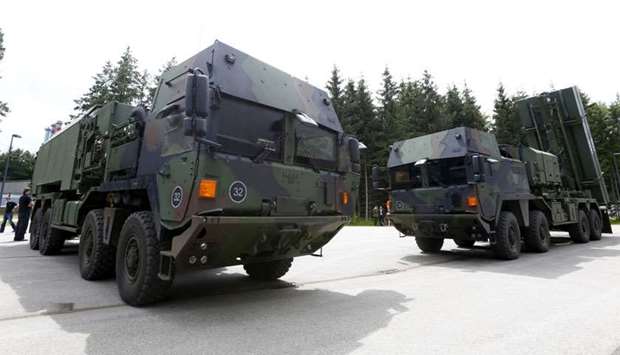Germany's defence ministry on Thursday asked Lockheed Martin Corp and Europe's MBDA to submit a second, more detailed proposal to build a successor to its Patriot missile defence system, a key step closer to signing the multibillion-euro deal.
The move paves the way for a contract signing in 2019, a ministry spokesman told Reuters.
That would mark four years since the ministry first announced it had chosen the Medium Extended Air Defence System (MEADS) -- developed by Lockheed and MBDA with $4 billion in funding from Germany, Italy and the United States -- over Raytheon Co's Patriot system.
The next-generation defence system is known as TLVS in German.
‘This is a another step forward toward a final contract in 2019,’ the spokesman said. He said the goal was to start fielding the new system around 2025 and to start operating it at end of the decade.
MBDA's German unit and US weapons maker Lockheed formed a 60-40 joint venture in March to press ahead with the TLVS defence system. The two have struggled to work out the details and terms of the programme since 2015, but sources familiar with the process have been more upbeat in recent months.
MBDA and Lockheed called Thursday's news ‘a significant milestone toward achieving a contract award’. ‘This lays the groundwork for consideration by parliament in 2019,’ said MBDA spokesman Roland Kuntze.
Gregory Kee, managing director of the joint venture, said the comprehensive negotiations increased the common understanding of possible risks, and would ensure that the tender fully addressed ministry's requirements.
Once signed, the contract will add several hundred high-tech jobs in Germany and the United States, the companies said.
MBDA is jointly owned by Airbus, Britain's BAE Systems and Italy's Leonardo.
MBDA and Lockheed executives say progress on the German deal could also trigger more interest by other countries in the system, which will offer the ability to knit together a variety of different systems, including Patriot.
The TLVS programme was initially slated to cost about 4 billion euros ($4.56 billion), but sources familiar with the proposal have said the final cost is likely to be several billion euros higher.

